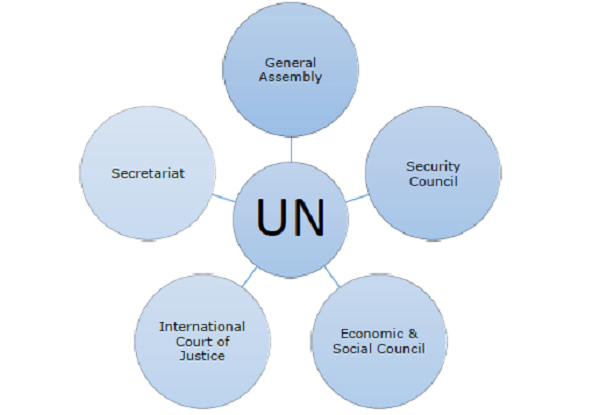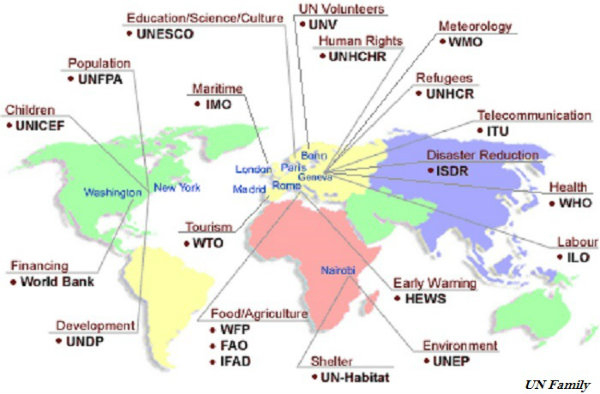Introduction
- The United Nations Organization or simply UNO/UN is regarded as the most important international organization in today’s world.
- International organizations help with matters of war and peace as well as help countries create better living conditions for us all.

- An international organization can help to produce information and ideas about how to cooperate each other experience overall growth.
- An international organization can also provide mechanisms, rules, and a bureaucracy, to help members have more confidence that the costs will be shared properly and to benefit governments.
- In 1945, the UN was founded as a successor to the League of Nations.
- The UN’s perspective is to bring countries together to improve the prospects of social and economic development all over the world.
Structure of the UNO
- There are five important bodies of UNO, as shown in the following diagram −

- In the UN Security Council, there are five permanent members and ten non-permanent members.
- The five permanent members are −
- The United States,
- Russia,
- The United Kingdom,
- France, and
- China.
- All these five members have the veto power.
- The non-permanent members serve for only two years at a time and give way to newly elected members.
- The non-permanent members are elected in a manner so that they represent all continents of the world.
- In the UN General Assembly, all members have one vote each.
- The Secretary-General is the head of the UN.
Functions of UN
- The major functions of the UN are −
- Creation of a Peacebuilding Commission.
- Acceptance of the responsibility to the international community in case of failures of national governments to protect their own citizens from atrocities.
- Establishment of a Human Rights Council (operational since 19 June 2006).
- Condemnation of terrorism in all its forms and manifestations, etc.
Agencies of UN
- The UN consists of many different structures and agencies (collectively known as UN Family – shown in the map given below) and they have specialized role to play. For example −
- World Health Organization (WHO),
- United Nations Development Programme (UNDP),
- United Nations Human Rights Commission (UNHRC),
- United Nations High Commission for Refugees (UNHCR),
- United Nations Children’s Fund (UNICEF),
- United Nations Educational, Scientific, and Cultural Organization (UNESCO), etc.


No comments:
Post a Comment